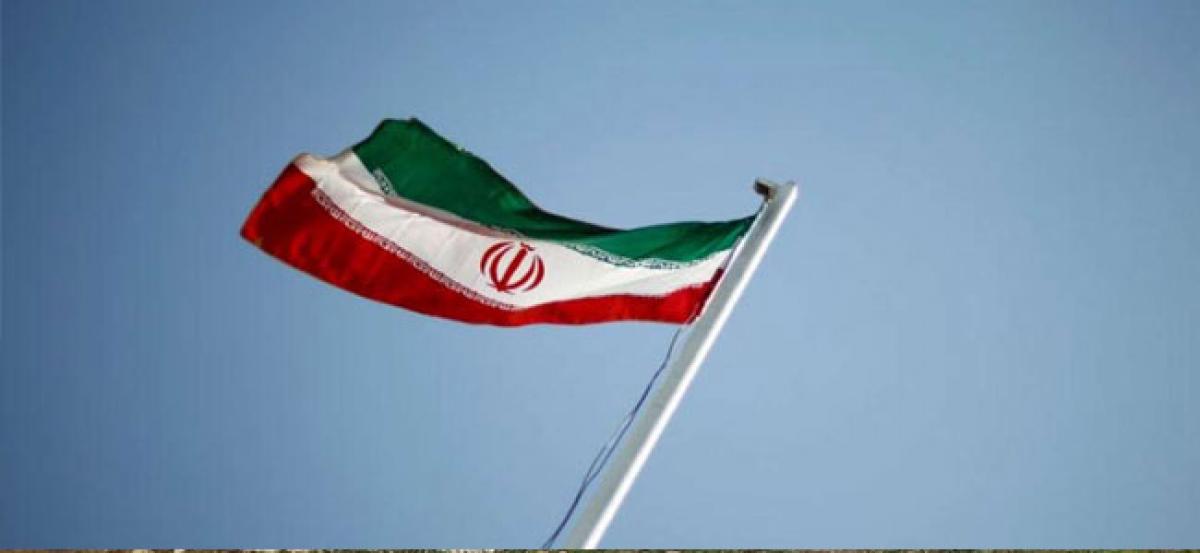US terminates 1955 Treaty of Amity with Iran

The US on Wednesday decided to terminate its 1955 Treaty of Amity with Iran, hours after UNs top court ordered the Trump administration to lift sanctions on humanitarian goods for Tehran
The US on Wednesday decided to terminate its 1955 'Treaty of Amity' with Iran, hours after UN's top court ordered the Trump administration to lift sanctions on humanitarian goods for Tehran.
Announcing the decision, US Secretary of State Mike Pompeo told reporters that the move was in response to Iran's decision to drag the America to the International Court of Justice (ICJ) on the Iranian nuclear deal.
"In light of how Iran groundlessly abused the ICJ as a forum for attacking the United States, I am, therefore, announcing today that the United States is terminating the Treaty of Amity with Iran.
"I hope that Iran's leaders will come to recognise that the only way to secure a bright future for its country is by ceasing their campaign of terror and destruction around the world," Pompeo said.
Pompeo's announcement follows a ruling by the ICJ, the United Nations' top court, ordering the US to lift sanctions on humanitarian goods to Iran.
President Donald Trump in May announced a renewal of tough US sanctions on the Islamic Republic after abandoning the multilateral Iran nuclear agreement over its ballistic missile program.
Iran filed a lawsuit against the US at the ICJ in July, arguing that the sanctions violate the friendship agreement signed in 1955 between the two countries when Shah Mohammad Reza Pahlavi was in power.
The treaty, which established economic relations and consular rights between the two nations, continued to remain in force following the 1979 Islamic Revolution despite diplomatic tensions between Tehran and Washington.
"I'm announcing that the United States is terminating the 1955 Treaty of Amity with Iran. This is a decision, frankly, that is 39 years overdue," Pompeo said at a hurriedly-convened press conference.
"Iran has attempted to interfere with the sovereign rights of the United States to take lawful actions necessary to protect our national security, and Iran is abusing the ICJ for political and propaganda purposes, and their case, as you can see from the decision, lacked merit," Pompeo had said.
"Given Iran's history of terrorism, ballistic missile activity and other malign behaviors, Iran's claims under the treaty are absurd," he alleged.
The ICJ ruling in this regard was a defeat for Iran, Pompeo said.
"It rightly rejected all of Iran's baseless requests. The court denied Iran's attempt to secure broad measures to interfere with US sanctions, and rightly noted Iran's history of noncompliance with its international obligations under the Treaty of Non-Proliferation of Nuclear Weapons," he said.
With regard to the aspects of the court's order focusing on potential humanitarian issues, Pompeo said the US had been clear: existing exceptions, authorisations and licensing policies for humanitarian-related transactions and safety of flight will remain in effect.
"The United States has been actively engaged on these issues without regard to any proceeding before the ICJ. We're working closely with the Department of the Treasury to ensure that certain humanitarian-related transactions involving Iran can and will continue," he said.
"We're disappointed that the court failed to recognise that it has no jurisdiction to issue any order relating to these sanctions measures with the United States, which is doing its work on Iran to protect its own essential security risk interests," Pompeo said.
In July, he had said Iran brought "a meritless case" in the International Court of Justice (ICJ) alleging violations of the Treaty of Amity.
Iran seeks to challenge the United States' decision to cease participation in the Iran nuclear deal, and to reimpose the sanctions that were lifted as part of that deal, he had said.









